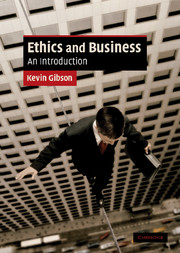Book contents
7 - Autonomy
Published online by Cambridge University Press: 05 June 2012
Summary
CortiSlim
Over a million Americans and Canadians have purchased a product called CortiSlim, which has been widely advertised on radio and television “infomercials.” Until restrained by the Federal Trade Commission in October 2004, the promoters claimed that taking CortiSlim caused
Permanent weight loss of 10 to 50 pounds for virtually all users;
Weight loss of 4 to 10 pounds per week over multiple weeks;
Weight loss targeted to the abdomen, stomach, and thighs.
Ads claimed the product worked by restricting the release of the hormone cortisone. Cortisone is released when the body is under stress and can bind proteins and create a feeling of hunger. Thus, CortiSlim's producers argue that stress causes fat accumulation (especially “belly fat”) and that by relieving stress, CortiSlim would reduce the body's reaction, thus leading to weight loss.
Although the marketers claimed fifteen years of scientific findings, there is no legitimate research backing the claim that the ingredients of CortiSlim either relieve stress or block cortisone release. The makers, Window Rock Enterprises, broadcast advertisements that claimed persistently high levels of cortisol were the underlying cause of weight gain and retention and that CortiSlim was “the answer.” Window Rock also marketed a product called CortiStress in September 2003, saying that high levels of cortisol are the cause of “every modern lifestyle disease that is associated with this fast-paced 21st century lifestyle” and that CortiStress could reduce the risk of osteoporosis, diabetes, Alzheimer's disease, cancer, and cardiovascular disease.
- Type
- Chapter
- Information
- Ethics and BusinessAn Introduction, pp. 148 - 176Publisher: Cambridge University PressPrint publication year: 2007

